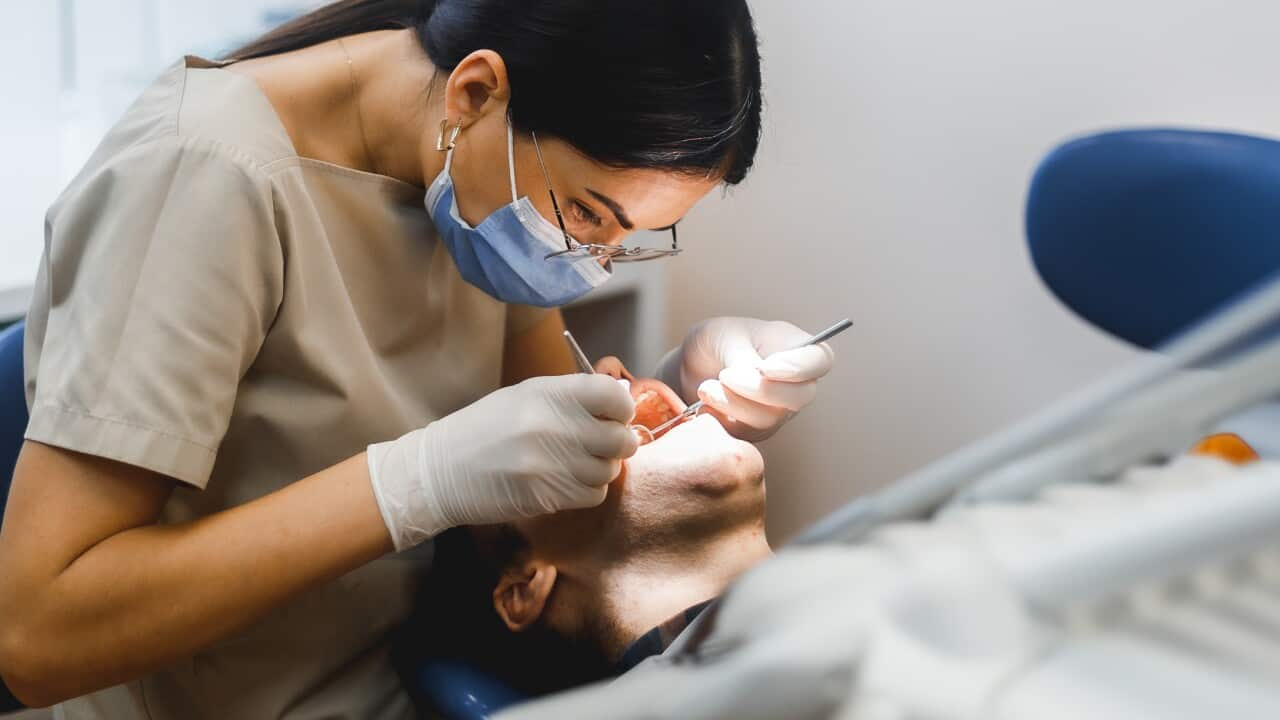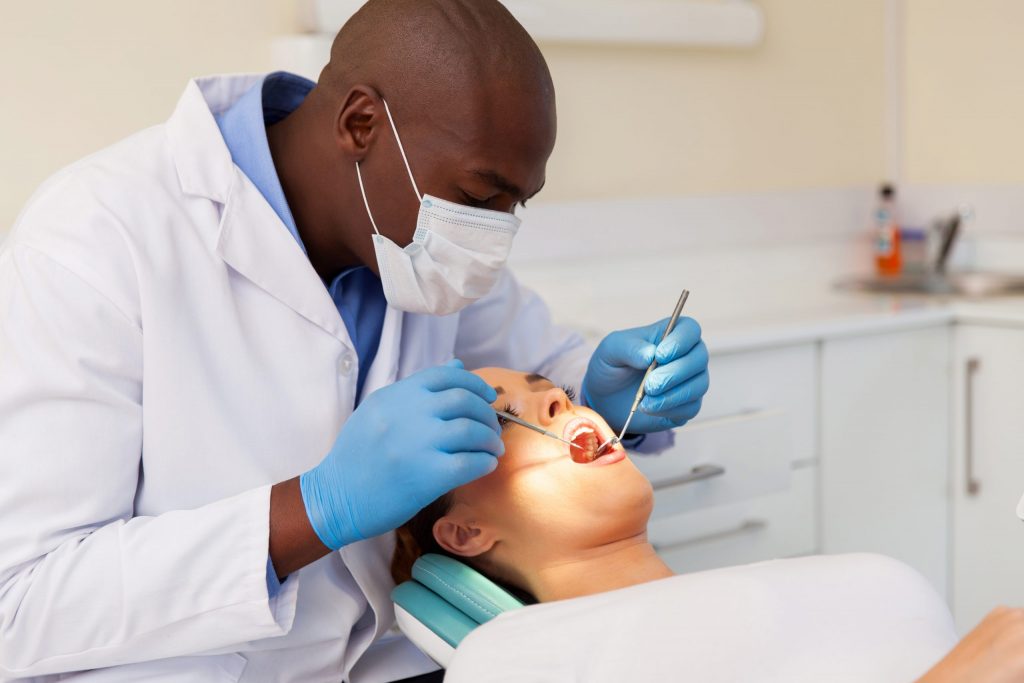Emergency Dentist Endeavour Hills - Urgent Oral Assistance
Emergency Dentist Endeavour Hills - Urgent Oral Assistance
Blog Article
The Power of Preventive Dental Care: Provider That Safeguard Your Smile
In the realm of oral care, the relevance of precautionary dental care can not be overemphasized. By proactively addressing dental health problems before they escalate right into more major issues, people can keep not only the aesthetic appeals but also the capability of their smiles. From regular cleansings to targeted treatments like sealers and fluoride applications, these services play a pivotal duty in protecting oral wellness. However, truth power of preventive dental care exists not only in the solutions themselves however likewise in the effect they can have on lasting oral health and wellness results.

Relevance of Preventive Dentistry
Precautionary dentistry plays a vital duty in maintaining optimal oral wellness by concentrating on positive procedures to avoid dental issues before they intensify (emergency dentist endeavour hills). Routine dental exams, expert cleansings, and person education and learning are essential elements of precautionary dental care. By going to routine visits, people can address any type of possible issues early, saving time, cash, and pain over time
Precautionary dentistry emphasizes the importance of excellent oral health techniques, such as cleaning and flossing daily, to avoid the buildup of plaque and tartar. These routines, when combined with expert cleansings, assistance preserve healthy and balanced teeth and gums, lowering the danger of cavities, periodontal disease, and various other dental health and wellness issues.
Furthermore, precautionary dental care involves the use of safety therapies like oral sealants and fluoride applications to reinforce teeth and prevent degeneration - emergency dentist endeavour hills. These interventions are especially advantageous for kids, whose creating teeth can greatly take advantage of such safety nets. Overall, prioritizing preventive dentistry can lead to improved oral health and wellness end results and a brighter, much healthier smile for several years to come
Typical Preventive Dental Provider
Routine oral check-ups and professional cleansings are necessary parts of preserving optimal oral wellness via safety nets. Throughout a regular oral exam, a dental professional will extensively analyze your teeth, gums, and generally mouth to identify any kind of indications of oral problems such as tooth cavities, periodontal disease, or dental cancer cells. X-rays might likewise be required to identify any type of underlying issues that are not visible during the visual evaluation. Specialist cleansings carried out by an oral hygienist are critical for removing plaque and tartar accumulation that normal cleaning and flossing may miss. Additionally, preventative therapies such as oral sealants and fluoride applications can aid secure your teeth from degeneration. One more typical preventative dental service is dental cancer screenings, where the dental practitioner checks for any indicators of dental cancer cells throughout your normal exam. By on a regular basis obtaining these usual preventive dental services, you can keep a healthy smile and prevent prospective oral illness before they escalate.
Benefits of Regular Cleanings
Normal oral cleansings carried out by an experienced oral hygienist play a crucial function in keeping ideal dental health by efficiently getting rid of plaque and tartar build-up that cleaning and flossing alone might not resolve. These cleanings aid protect against gum disease, cavities, and various other dental health concerns. By getting rid of plaque, which is a sticky movie of germs, prior to it solidifies into tartar, cleanings reduce the threat of creating periodontal condition. Additionally, regular cleanings contribute to fresher breath and a brighter smile by eliminating microorganisms that can cause bad breath and spots.
Furthermore, oral cleanings can additionally aid in the very early discovery of dental health issue. Throughout a cleaning, the hygienist can determine concerns such as very early indicators of dental caries, gum swelling, or oral cancer. Finding these issues at an early stage can avoid them from advancing into much more severe conditions that might need comprehensive therapy. In general, scheduling routine oral cleansings is a description proactive strategy to maintaining good oral health and wellness and protecting against significant dental issues in the future.
Comprehending Sealants and Fluoride Therapies
Dental hygienists not just play a crucial role in maintaining ideal dental wellness via routine cleansings however additionally supply beneficial preventive therapies such as sealers and fluoride applications. Sealers are thin safety finishings related to the chewing surfaces of molars and premolars to shield them from decay-causing microorganisms and acids. These sealants successfully secure off the deep grooves and gaps where food fragments and plaque can accumulate, reducing the threat of cavities in those locations.
Fluoride therapies, on the other hand, entail the application of fluoride-- a natural mineral that helps reinforce tooth enamel and makes it much more immune to acids and decay. This precautionary measure can be especially beneficial for individuals at a greater threat of establishing cavities. Routine fluoride therapies can help remineralize locations of the enamel that have been weakened by acid strikes, inevitably preventing the development of cavities.
Stopping Dental Issues Early
To keep optimum oral wellness and prevent future dental difficulties, early treatment and positive treatment are crucial components of a detailed dental hygiene regimen. Early avoidance entails routine dental examinations, usually every 6 months, to spot any indications of dental issues in their first stages. These check-ups allow dental practitioners to recognize prospective issues such as cavities, gum condition, or misalignments early on, enabling prompt treatment and protecting against more damages.
Along with normal exams, practicing good dental hygiene in the house is vital for preventing oral issues. This includes brushing teeth at least twice a day, flossing daily, and gargling to remove bacteria and food bits that can lead to decay and gum illness. Incorporating a balanced diet regimen reduced in sugary foods and beverages likewise plays a substantial role in keeping oral wellness.
Verdict

Throughout a regular dental check-up, a dentist will thoroughly analyze your teeth, gum try this website tissues, and generally oral cavity to spot any kind of signs of dental problems such as tooth cavities, gum disease, or oral cancer cells.Regular oral cleansings done by an experienced oral hygienist play a vital role in keeping ideal oral health and wellness by properly eliminating plaque and tartar buildup that cleaning and flossing alone may not resolve. Generally, scheduling routine dental cleansings is an aggressive approach to preserving good dental health and protecting against significant oral issues in the future.
To keep optimal dental health and wellness and stop future oral complications, very early intervention and positive treatment are vital read what he said components of a thorough dental hygiene routine (dentist in endeavour hills). Early prevention involves routine dental exams, generally every 6 months, to detect any indicators of oral concerns in their preliminary stages
Report this page